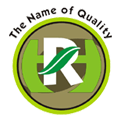Stomach and Digestive System
The digestive system is a complex network of organs responsible for breaking down food into nutrients that the body can absorb and use for energy, growth, and repair. It begins at the mouth and continues through a series of organs, including the esophagus, stomach, small intestine, large intestine, and ends at the anus.
The stomach is a muscular, hollow organ located between the esophagus and the small intestine. It plays a key role in digestion by:
-
Storing food temporarily after it is swallowed.
-
Mixing food with gastric juices, which contain hydrochloric acid and digestive enzymes that break down proteins.
-
Killing harmful bacteria present in food due to its acidic environment.
-
Gradually releasing partially digested food (chyme) into the small intestine for further digestion and nutrient absorption.
The digestive system works through a combination of mechanical digestion (chewing and stomach churning) and chemical digestion (enzymes and acids breaking down food molecules). It also involves the absorption of nutrients into the bloodstream and the elimination of waste through the rectum and anus
0 Products found
